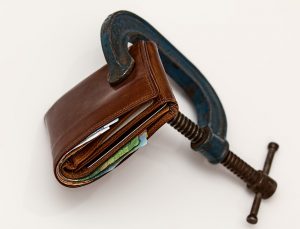Most of us know that there are three credit bureaus but do you really understand what they do? The three credit bureaus are Equifax, Experian and TransUnion, and they collect information about you, the consumer. This includes where you live, your job, your payment history and other factors that affect your creditworthiness.
Using this information, the credit bureaus compile a credit score, helping companies you want to buy or borrow from make an informed decision on whether to provide you credit.
How these credit bureaus work
The three credit bureaus use information in your credit report to come up with your credit score. A credit report contains such information as:
- How well you keep up to date on paying your bills.
- Whether you have a bankruptcy.
- The amount of your current debt.
You can contact the credit agencies directly if you need to dispute information in your report.
In addition, you can request a free credit report from each of the bureaus every 12 months. This allows you to correct any potential mistakes on your credit report.
Unfortunately, the free credit report you receive does not contain your credit score; you have to pay for that. Most experts recommend you space out your free report requests to receive them throughout the year.
In the U.S., the three credit bureaus fall under the jurisdiction of the Federal Trade Commission and the Office of the Comptroller of the Currency. Together, the agencies monitor and regulate reporting from national banks and the consumer reporting agencies to protect the American consumer under the Fair Credit Reporting Act, among other regulations.
How the 3 credit bureaus collect information
In addition to reporting on the creditworthiness of a business or consumer, the credit bureaus also collect financial information. This information helps the agencies to create their reports. This information includes:
The FICO score
A FICO score represents a variety of factors about you as a consumer. These factors include payment history, how much debt you have, the types of credit you use, the length of your credit history and any new accounts.
READ MORE: What is a good FICO score?
The 3 credit bureaus
The credit bureaus include Equifax, Experian and TransUnion, with each of the credit bureaus receiving information from some lenders that the others may not receive.
In addition to sending out credit reports, each bureau also offers credit monitoring for a fee.
1. Equifax
Founded in 1898, Equifax started out by offering consumer credit reports in the business sector. Eventually, the company began providing credit reports to consumers and offering other services, including identity theft and credit fraud protection.
2. Experian
A group of London merchants started swapping information on customers who failed to settle their debts. One such association, the Manchester Guardian Society, formed in 1826, later becoming a major part of Experian. Eventually, Experian broadened its product range into new industry sectors and markets around the world.
3. TransUnion
Originally formed as a holding company for Union Tank Car Co., TransUnion eventually expanded its business to include consumer credit monitoring. Like the other major credit bureaus, TransUnion offers credit monitoring products to both businesses and consumers.
Renee Mears Realtors wants to help with your credit score. Complete the form below for additional information.
Published on 2017-02-02 12:35:51

